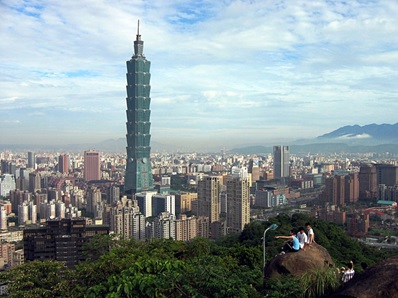
Eight years ago, Local Concept kick-started its global expansion by opening a Branch- office, and has maintained a strong presence in the region. In Asia, Taiwan is known for its developed economy, consolidating democracy, and equal society. It is also the home of globally recognized technology brands like Acer, Asus and HTC. Unfortunately, many people in the West are unable to pinpoint Taiwan’s geographic location, predominant industry, or even the main languages spoken. Taiwan remains a largely unknown destination that is often overshadowed by its neighbors —China, Japan and Korea. And yet, Taiwan possesses qualities that make it a perfect destination for business, commerce, and even tourism.
Local Concept-Taipei offers you 4 reasons why Taiwan should be considered the bridge that introduces Western businesses into East Asia.
-
Taiwan, at the heart of Asia
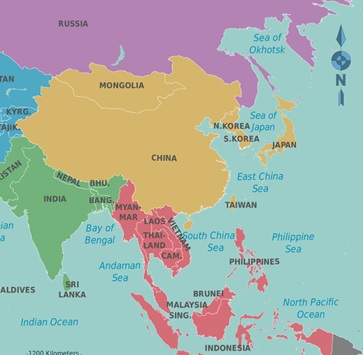
The island is located between major business hubs like Tokyo, Shanghai and Hong Kong, and the emerging markets in Southeast Asia. Taoyuan International Airport is the largest airport of Taiwan, and the main international hub for China Airlines and EVA Air connecting to Australia, the United States and Europe. Taiwan allows a great number of nationalities to visit the island for up to 90 days without a visa, thus facilitating the flow of travelers, visitors and business people that want to eliminate visa requirements from their tight travel schedules.
Thanks to the modern, convenient and efficient High Speed Rail, it is now possible to travel from north to south of the island in as little as 96 minutes —a journey that, by bus, would take up to 6 hours. Business people can visit their factories in the south during the day and go back to Taipei in time to enjoy a great dinner in the city. Convenience, after all, is Taiwan’s number one priority.
-
Multicultural, multilingual
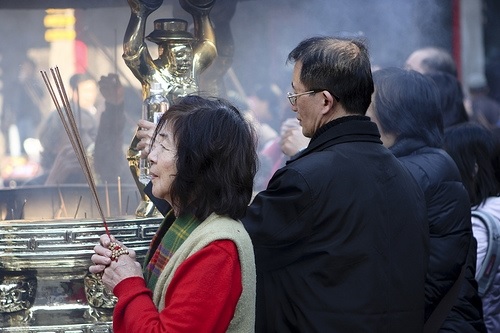 Taiwan is an island of cultural contrasts. Colonized by many throughout the centuries —the Dutch, the Spaniard, the Japanese and the Chinese— Taiwan has a genuine Western feeling that foreigners won’t find in other parts of Asia. Taiwanese people are fascinated by American culture, and yet preserve Chinese culture, traditions and religion more purely than in Mainland China. Buddhist and Taoist temples are found in every corner of the city, and it is common to see people of all ages praying and making offerings to the gods outside houses, shops and even in their workplaces.
Taiwan is an island of cultural contrasts. Colonized by many throughout the centuries —the Dutch, the Spaniard, the Japanese and the Chinese— Taiwan has a genuine Western feeling that foreigners won’t find in other parts of Asia. Taiwanese people are fascinated by American culture, and yet preserve Chinese culture, traditions and religion more purely than in Mainland China. Buddhist and Taoist temples are found in every corner of the city, and it is common to see people of all ages praying and making offerings to the gods outside houses, shops and even in their workplaces.
Mandarin Chinese is Taiwan’s official language, and it is nowadays considered the native language of most people. The majority of Taiwanese people are in fact bilingual, as the native Taiwanese Hokkien (also known as Taiwanese Minnan) is widely spoken all throughout the island. In addition, Taiwanese are considered substantially more fluent in English than their Japanese, Korean and Chinese neighbors.
The cultural and linguistic exposure to the West is a valuable asset for Taiwan. The island has now taken over the role of the Bridge to enter the Chinese and other neighboring markets, acting as a gateway to Asia for Westerners that wish to eliminate cultural shock, potential legal obstacles and communication problems.
-
Affordable quality
The socioeconomic development of Taiwan in the 1970s and 1980s resulted in the establishment of a strong, well-educated and equal middle-class, as well as the development of quality infrastructure and resources. Nowadays, transportation in Taiwan is outstandingly convenient and affordable; rent is —at least for American and European standards— reasonably priced; and other services such as food and entertainment are at the level of the most developed countries in the region. Not only that, but also considering how highly educated and qualified Taiwanese workers are, the cost of human resources in Taiwan is arguably lower than in other countries in Asia. Overall, Taiwan maintains a desirable balance of quality resources at affordable prices.
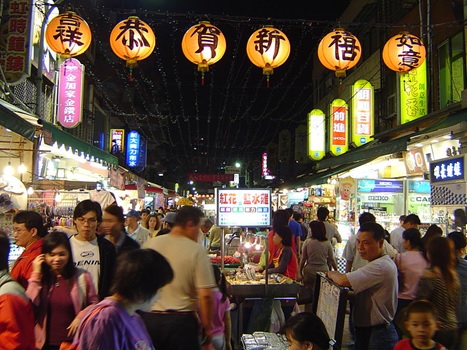 The sociocultural context of a country can also be a deciding factor for companies looking to settle in a different region. Taiwan charms foreigners with its rich culture, stunning landscapes, convenience and safety.
The sociocultural context of a country can also be a deciding factor for companies looking to settle in a different region. Taiwan charms foreigners with its rich culture, stunning landscapes, convenience and safety.
Taiwanese are inherently friendly people. Even with language barriers, the islanders will always go out of their way to help you and make you feel welcome. Their organized mentality reflects all aspects of life, from the surprisingly efficient government agencies, to the perfect lines formed for any occasion —waiting for the train, to sample food in the night markets, or for the opening of the latest department store.
Taiwan is also a foodie country. For Taiwanese people, tasting new foods and trying new restaurants is a main social activity. Whether it is one of the many night markets on the island, a new hip Western restaurant, or a local noodle shop, the culinary experience of Taiwan is as multicultural as the island.
Despite not being a main tourist destination in Asia, Taiwan should be considered an ideal destination for your visit. In a week’s time, tourists can visit skyscrapers like the Taipei 101, and take a hike in the stunning natural parks and mountain areas; blend with the locals in the bustling night markets of the city or enjoy the solitude of the scarcely populated beaches of the East coast; visit temples, pagodas, take a dip in the hot springs, shop the fish markets and shopping malls; drink tea, sing in a karaoke room, or drink rice wine with aboriginal people.
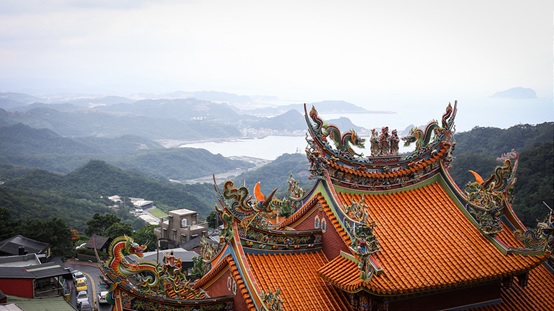
On top of all that, Taiwan is one of the safest places in the world. According to the Economist’s Safe Cities Index of 2015, Taipei ranked 13th in overall security, and was the 5th safest country in the world in personal security.
For some, Taiwan is just that place where childhood toys were made and for others it is a minor tourist destination in Asia. However, for the great international community living here and businesses like Local Concept that chose this island as their home in Asia, Taiwan is neither of those. Taiwan is Taiwanderful.
Follow us in Social Media:
Twitter: @localconcept1
Google+: https://plus.google.com/+LocalConceptUS
LinkedIn: https://www.linkedin.com/in/localconcept/
Facebook: https://www.facebook.com/Local.Concept.Inc/


